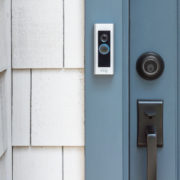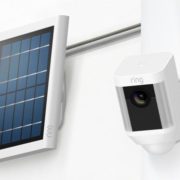The Dos and Don’ts of Selecting Your Alarm PIN
Whether your alarm is wired, wireless, cellular, app-controlled, or manual only, your alarm PIN is likely your last line of defense. Maybe a hacker manages to get into the home security app with your account. Perhaps a burglar is in your house prepared to attempt shutting off the alarm with however many attempts your system allows. You will want the final roadblock to be the one they can’t get past. Yet so many people choose weak PINs.
Data Genetics completed a study that revealed just how weak people’s PINs are. They analyzed 3.4 million 4-digit passwords using data they gathered from previously-exposed databases. There are only 10,000 possible combinations, so it’s expected that there will be repeats in that large of a data set. However, the frequency of some of the combinations was statistically significant. Out of 3.4 million passwords, 11% of the people used 1234, 6% used 1111, and 2% used 0000. Nearly 27% of the passwords were among the top twenty most frequent.
What does that mean for you? If you’re among the 1.08 in 4 people who use one of these twenty most frequent combinations as your PIN, a hacker or burglar has a significantly higher chance of disabling your alarm. You can take the risk of using a weak PIN and hoping for the best, or you can optimize the security of your home. Choose a strong PIN using these dos and don’ts of selecting your alarm PIN.
Number Sequences
- Don’t use repeated numbers (1111, 2222, etc.).
All of these appeared in the twenty most frequent PINs.
- Don’t use sequences based on number position.
2580 may look like an odd PIN to be the 22nd most-used PIN until you look at its position on a number pad. The numbers are not a scrambled sequence but are in a line straight down the middle. Combinations using corners are also common and easy to guess.
- Do use random number sequences.
The more random your alarm PIN, the more secure it is. For example, the least common PIN was 8068. It’s not an important date, a number pattern, nor easy to type based on position. How can you generate a random number? One way could be to look at the clock and use the current time as your PIN. You could convert it to military time for good measure since 0 and 1 are the most common numbers to act as the first digit of a PIN. If you think you’d have trouble remembering a random number, keep reading. We’ll go into some things you can do to create a safe but memorable PIN.
Dates
- Don’t use a year in the 1900s.
Every pin that starts with 19 is in the top fifth of the most-used PINs. Suppose you use a year of birth or the year of an anniversary. That makes your alarm PIN even easier to guess, especially if the hacker or burglar knows you or has looked you up on social media.
(Note: To increase the security of your online presence, hide your birthday from your profiles wherever possible. You may even want to invent a “social media birthday.” Instead of putting your actual birthday, use something similar but not the exact date. Then, people won’t be able to use your social media information for any of the numerous confidential things that your date of birth is connected to. This is not to promote lying about your age on dating profiles or making accounts on websites before you’ve reached their minimum age requirement.)
- Don’t use birthdays or anniversaries.
See above. In addition to the year, don’t use (MMDD), (DDMM), or (MMYY) formats, either.
- Do use obscure dates.
If you use a year, make it something obscure, like if you’re a Les Misérables fan and you use 1832 as your alarm PIN to commemorate the June Rebellion. Even other Les Misérables fans think the book takes place during the French Revolution, despite it being several decades after. The June Rebellion was obscure enough that most non-fans probably won’t have heard of it, either.
Phone Numbers
- Don’t use your current phone number.
Even though phone books are a relic of the past, it’s not hard to get your hands on someone’s phone number. Just ask all those people who want to talk to you about your extended car warranty. Using one’s phone number for a PIN is common enough that if the person breaking into your home has yours, they might think to use that and get access as a result.
- Do use a childhood phone number you don’t use anymore.
If you want to use a phone number as an easy way of remembering your alarm PIN, use an old one. If it’s your home phone number from when you were growing up, it won’t be connected to your name since your parents or guardians were the account holders.
Phone Words
If numbers aren’t easy for you to remember, you could use a phone word instead. This is when you take a word and put it into numbers using the letters’ alphanumeric equivalents. (You know how the keypad on your phone has letters written under the numbers? The number a letter appears under is the alphanumeric equivalent.) Then, you can give yourself something easy for you to remember, but it’s in disguise. If you go this route, there are a few things you will want to keep in mind.
- Don’t use words that make common number sequences.
You wouldn’t want the word you use as your alarm PIN to be something like “moon” (6666) since that would give you a repeated number sequence.
- Do use words that give you a random sequence.
Use a four-letter word (not necessarily one of those four-letter words) and use the alphanumeric equivalents. You could use “star,” which would become 7827.
- Do use acronyms.
You could also use an acronym. Create a four-word phrase and use the corresponding numbers of the first letters: “Turn off the Alarm” (TOTA = 8682).
- Don’t use acronyms that make common number sequences.
Like before, you will want to avoid acronyms that create common PINs. If you used “Other Zebras Only Walk” (OZOW), you’d end up with 6969, the 10th most common PIN.
Other Tips
When you have your secure alarm PIN, you will also want to regularly clean your alarm’s control panel. This way, a burglar won’t be able to guess your PIN by looking at the dirtiest buttons or where the most fingerprints are on the touch screen. Most importantly, use different PINs for different purposes. Don’t use the same PIN for your alarm system that you use for banking or your phone passcode. Then, if someone cracks one of your PINs, your other accounts are still safe.










Leave a Reply
Want to join the discussion?Feel free to contribute!